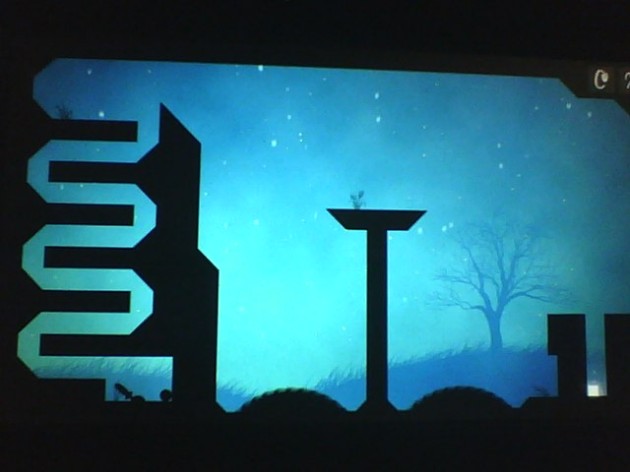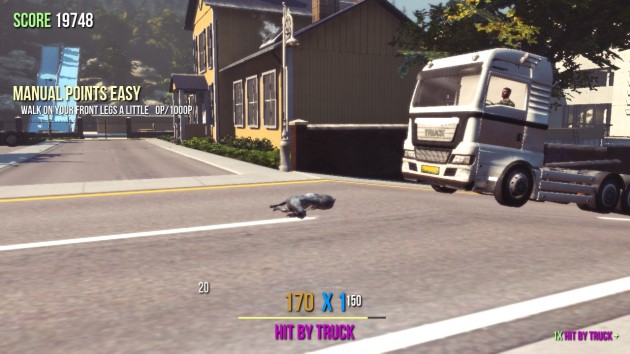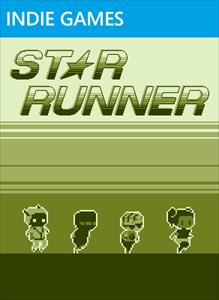Oh…Sir!! The Insult Simulator and Oh…Sir! The Hollywood Roast
August 3, 2018 5 Comments
I found the existence of the Oh…Sir! franchise to be potentially refreshing. It harkens back to a simpler time when Yo Mama jokes were practically a national pastime. My father pointed out that In Living Color had a recurring sketch called The Dirty Dozens that turned Mama jokes into a gameshow. It’s actually still pretty fun to watch.
The Oh…Sir series is sort of trying to be like that, only they’re framed as fighting games where damage is done by hurling insults at your opponent. To create the insults, the fighters are given a seemingly random selection of parts of speech that you take turns selecting to form sentences out of. It seems like it would be deliciously crass and with the right algorithm it could be really great, right?
Actually, without hyperbole, these are the very worst indie games I’ve ever played. The absolute worst of the worst.
The concept is fine, and if the parts of speech were generated in a way where you could always form something resembling a coherent sentence, they’d be great. But that’s not the case at all. There seems to be no rigging done of the options, and since you and your opponent alternate selections, I found that you were more likely to produce something that sounds like gibberish than an actual sentence that sounds insulting.
So let me show you an example. Here’s the first set of speech options I was given for this match.

Alternating turns, we have to assemble those into “insults”. The two options in the bottom left-hand corner are only usable by me, and I can change them into two different, random options once each word-bank. If there’s a (…) that means you can carry the sentence you’re assembling over to the next word-bank, at a cost of not doing any damage that turn. That wasn’t an option here, so myself and the AI had to assemble an insult using just these meager options. Here’s what the AI came up with.

What.. the.. fuck was that? And that did six points of damage to me! Why? That is not an insult. That’s a person having a stroke. And they’re both British it seems like, so, like, your country smells like my face too, idiot! And why six points? The scoring system seems arbitrary and disassociated from the happenings.
Here was my retort. This was the best I could come up with given the limited options.

Now I’ll be honest: I had no clue what “ruttish” means. I’m an American, so I don’t speak the Queen’s English. But apparently it means “lustful.” Okay. So this was the best I could do, and it worked to the tune of causing ten points of damage, putting me four points up on the AI opponent. But again, I have to ask, why? Maybe this is a cultural thing and this would kill on the other side of the pond, but I don’t get how this is insulting. I’m didn’t say or even imply that the wife was doing anything inappropriate with the fishmonger. And a fishmonger (which is person who sells raw, typically freshly-caught fish) is a perfectly respectable job. Since the female version of “fishmonger” is “fishwife” which is a common insult, maybe the implication is that by working with the fishmonger, the gentleman’s wife is actually a fishwife? But that can’t be, because it completely ignores the “ruttish” part of the sentence. A few people told me that it’s supposed to be like Monty Python and make no sense and that’s what makes it work. Um, I’ve watched Monty Python. The stuff they say mostly makes sense to me and doesn’t come across like someone trying to assemble a script using what they found while emptying a paper-shredder.
And I’m guessing the above paragraph put more thought into the logic of the game’s insults than the developers did during the entire developmental cycle.
That example is not some kind of outlier from an otherwise perfectly logical system. It’s the norm. After spending a few hours with each game, I found that maybe one-in-twenty word banks would allow me to form a coherent, non-gibberish insult that sounds like something an angry person would say to someone else. For the most part, even your best efforts will produce a garbled word-salad that not even the most thin-skinned douchebag on the planet could take offense to. I know this, because I tested it on my own friends, who are all thin-skinned douchebags, the whole lot of ’em. I selected twenty at random and sent them the following verbatim insults that was generated by me or my AI opponent during my play-sessions, all of which scored damage:
“Your mother and your hat change into this conversation!”
“Your Hat changes into Your Sister!”
“Your Son and Your Husband are not Part of Europe!”
“A Hamster is this Conversation and wanted to be your husband, Tovarishch!”
“Your Son wanted to be a Lumberjack and is Getting Fat and is Some Dog!”
“Your Cousin’s Car Admires Pictures of this Place and was Born in Your Seat and is an Old Bugger!“
By the way, the game that produced the above insults? It has 2,000 plus positive ratings on Steam. Yea.
My friends took my attempts at ending our friendship rather well. 4 out of the 20 asked if I had relapsed. 3 asked if had just had a seizure or was recovering from one. The other 13 were just confused. When I explained to all 20 of them that these were insults and asked them to rate how hurt their feelings were on a scale of 1 to 10, seven of them said “1”, five said “0”, two were still too confused to even comment on what they had just read, and the four people who asked if I had relapsed again asked if I had relapsed, and two other people joined them in asking if I was on something. None of the twenty unfriended me, though six were kind enough to take pity on me. That sure was nice of them.

It was ALMOST clever to cross Harry Potter with Dirty Harry. Almost.
The lobotomized dialog is hardly the only problem. If you perform a “combo” by using the same subject-matter in two or more straight insults, you deal extra damage. But because of the random nature of the speech options, you can’t remotely plan a strategy for this. If you choose the person’s hat as the target of your venom, you can’t get a combo if the game doesn’t include “hat” the next go around, or if your opponent chooses it first. I’m notoriously unlucky when it comes to random chance in games, and that was hugely noticeable during my play sessions with Oh…Sir and Oh…Sir Hollywood, where my AI opponents had an uncanny knack of going first and stealing my combos with their first selection on the off-chance they were put on the board. It further removes strategy from the games and reduces winning and losing to luck. And that’s especially true when you play with an actual human who knows what they’re doing as opposed to the often brain-dead AI that would come close to winning only to mess up and fail to enter a proper sentence at all, causing a loss of turn. This happened a lot. It’s how I finished the game on Xbox.
But the way the game reads the parts of speech has just as much potential to fuck you over. Especially when trying to use the word “and”. The game seems to only let you use “and” to start an entirely new insult and not to compound an existing one by lumping two subject matters together with it. The majority of times the game gave me a score of zero, it was because I misused “and” even though my intent for its use couldn’t have been more clear. Take this example:
And the game even further fails at strategy with character-specific weaknesses that cause extra damage. Like, maybe one is especially insulted by age jokes. A perfectly good idea for a series that aspires to be a fighting game where you trade insults instead of fisticuffs. But again, you’re completely at the mercy of the random word bank, which doesn’t seem to spit out the extra-damage words enough. But it’s logically even worse, because you also have your own extra-damage weakness that you have to defend against. So if you’re playing as a character that hates having his manhood insulted and a word that targets machismo is on the board, you pretty much have to take it or face receiving a disproportionate amount of damage. So both you and your opponent will score lower, in a game where matches tend to be slogs already.
The only fast-paced aspect of Oh…Sir is yet another strike against it: you only get fifteen seconds to read, process, and assemble-in-your-head the parts of speech before making a selection. That sounds like enough time until you remember what an incomprehensible word-vomit you have to work with. If you’re anything like me, you’ll eventually give up on trying to make sentences sound like English and just focus on scoring damage, something you have to rely entirely on random chance to excel at.
I needed a full week of processing and replaying Oh…Sir and Oh…Sir: The Hollywood Roast (which technically I bought first for XB1) trying to find something redeeming to say about the games. Besides the fact that whoever they got to do the Arnold Schwarzenegger impression for the Hollywood Roast is quite convincing, to the point that I wondered if they got the real guy (hey, have you seen how his recent movies have done in the box office? Dude needs a job!), I came up short. Playing the Oh…Sir games is like combing through the rubble of a recently blown-up dictionary factory without the fun of seeing the actual explosion.

 Oh…Sir!! The Insult Simulator and Oh…Sir!! The Hollywood Roast were developed by Vile Monarch
Oh…Sir!! The Insult Simulator and Oh…Sir!! The Hollywood Roast were developed by Vile Monarch
Point of Sale for Oh…Sir: Steam, Switch, Xbox One, PlayStation 4
Point of Sale for The Hollywood Roast: Steam, Switch, Xbox One, PlayStation 4
$0.79 (Oh…Sir!!, normally $1.99) and $4.99 asked if the “prepubescent teenage boy” line was really necessary in the making of this review.






















You must be logged in to post a comment.